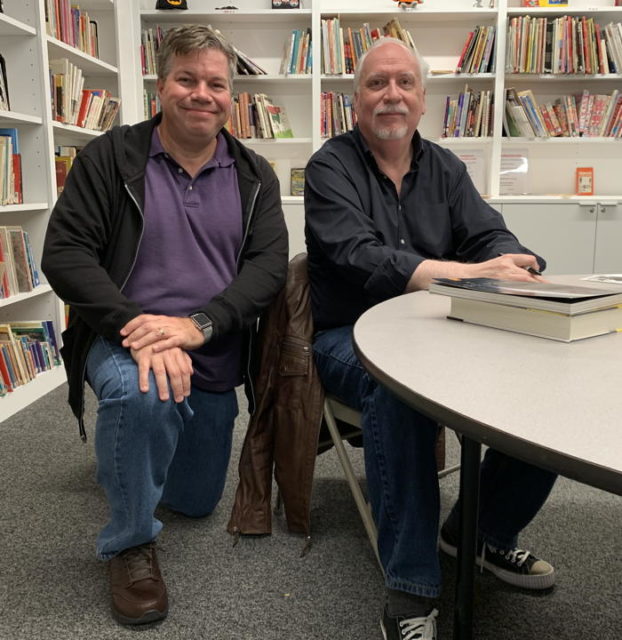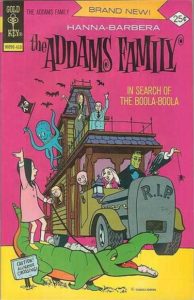Now that I’m fifty, I “get to” start some of those rites of passage for older citizens in our society. The AARP mail has started rolling in, of course, but the other milestone is that yesterday I had a colonoscopy. I wanted to document my experience, partly for anyone searching around for personal accounts of the procedure, and partly for my own reference the next time this rolls around.
Spoiler: The exam didn’t find anything. I don’t know whether I’d be writing this post if it did find something. Writing about medical issues is something which is, well, maybe not frowned upon exactly, but something people often don’t do, due to a lot of different personal and internal pressures, as far as I can tell. I’m not terribly shy about it myself (though TBF I’m also pretty healthy), but I don’t think people really want to hear about it either. But as something which was a pretty significant subject for me over the last week, I decided it seemed reasonable to write it up.
I got a referral for the procedure when I saw my PCP last March, but I put it off for various reasons, not least worry about the difficulty of preparing for it and finding out what the results would be on the other end. But since I knew my schedule would be clearing up early this month, and not wanting to put it off into the holiday season, I made the call and was happy to find out I pretty much had my pick of dates for when to do it. So I scheduled it for noon yesterday (which, for those gliding into this entry in the future, was a Tuesday).
The pre-prep involved picking up the laxative for the day before the exam, and stopping eating nuts and seeds a week before, I guess because those take longer to digest. Although not specifically called out, I also avoided nut products like peanut butter. It also occurred to me that there are incidental seeds in a lot of things, e.g. sesame seeds on buns, those whatever-they-are on the bottom of English muffins, etc. I didn’t kill myself trying to cut out everything, but I avoided anything obvious, trying to generally stay in the spirit of things. I was also supposed to skip aspirin and ibuprofen, which was easier.
The real ‘fun’ started on Monday, when I was supposed to stop eating anything except for white liquids (lemonade, white cranberry & white grape juice, chicken broth, etc.). I did go to work and had a low-energy day. Fasting was not as bad as I thought it would be – my stomach had a dull ache all day, but it wasn’t growling out of control and leaving me weak and woozy. But it was probably the worst part of the preparation.
I left work early and went home to take the laxative (under the brand name SUPREP) at 6 pm. This involved mixing a 6-oz bottle of the stuff with 10 oz of cold water, drinking the whole thing, and then drinking 32 oz more water over the next hour. I had heard a few stories about the taste of the stuff, but it was actually not that bad. It smelled kind of like cherry NyQuil, tasted a little worse, but was pretty easy to chug down with a pause for breath in the middle. Honestly drinking another 32 oz of water over the next hour was harder, because that’s a lot of water in a short time.
My big worry was that the results of the stuff was going to be miserable: Sitting on the toilet for 2-to-3 hours, or dirtying my clothes or furniture, and I was braced for it to have an immediate effect after drinking it. In fact it took about 40 minutes before I felt the effects, and I had the usual amount of control over my bowels throughout the experience. The effects lasted about 4 hours – which is presumably why I had to drink it at 6 pm, so I could get a decent night’s sleep – and overall was not so bad. Better than not being able to eat, honestly.
As my procedure was scheduled for noon on Tuesday, I woke up at my usual time at 6 pm and showered, and then drank the second dose of laxative, and, well, let’s just say that it was pretty clear that the medical brain-trust knew what they were doing to prescribe two doses. The experience was basically the same as the night before, except that I had to stop drinking around 9 am. But I did drink some extra water before that.
Debbi stayed home in order to drive me to and from the appointment and keep an eye on me afterwards, so we went in well before check-in time, and a little after 11 I went through the whole check-in process. Since I would be somewhat sedated during the process, they put some monitors on me and an IV drip. Apparently being dehydrated makes it more difficult to put the needle into a vein, but fortunately they got it in in a single try. That was probably the worst part of the pre-op procedure. Well, that and the fact that I was cold all morning, which they said was a side-effect of the prep procedure.
While they were wheeling me into the room I reflected that the last time I was on a gurney being wheeled around a hospital was when I was 17 having surgery for a pilonidal cyst. (I remember the date because it was the summer of 1986, because I started watching baseball while recovering from that surgery in the hospital.) Before that was probably when I was 7 and had surgery for a hydrocele, which I barely remember except during recovery was the only time I’ve ever found Cheerios to be tasty. I guess I’ve been pretty lucky to have avoided this experience for the last 33 years.
The actual exam had me lying on my left side, but almost as soon as I turned onto it my memory goes blank. I assume the sedative kicked in and I either fell asleep or just got too groggy to remember. The nurse said it’s common for people to not remember or have one brief flashes of memory of the exam. I remember taking up near the end of it and seeing the screen they were looking at, which was weirdly mesmerizing, watching something tunnel around inside my innards. It was like some weird Doctor Who special effect. It was vaguely uncomfortable, but not painful. Then it was done and they wheeled me to toe recovery room.
Debbi met me there and the doctor came in and said that they’d found nothing during the exam, no polyps or anything else they needed to monitor, which means I don’t need to do this for another 10 years. Woo! Apparently I do have a few diverticuli, which the doctor says is very common and is unlikely to cause any problems.
Since I had been sedated, I was instructed not to drive or drink alcohol (or “make important decisions”) for the rest of the day. I think I was still a little groggy – without feeling groggy – because I don’t really remember getting dressed, but I remember everything after that. I basically felt normal, but I trusted that I wasn’t, really.
Debbi drove us home and I ate some soup and an English muffin, and had a quiet rest of the day. Around 3 pm I fell asleep for a couple of hours, and then Debbi made dinner. I was not as ravenously hungry as I’d expected to be, though we did also go out for ice cream. I also felt well enough to go to a walk before dinner (thus keeping my 4-month Apple Watch move goal streak alive!).
This morning was a normal day (plus a call from the doctor’s office to make sure I was feeling okay), and so far no after-effects from anything in the procedure. It’s a big relief to have it over, and to have had a positive outcome. I tried not to worry about it too much, but I did have some anxiety about it regardless. I’m very glad I don’t need to do it again for a decade.




